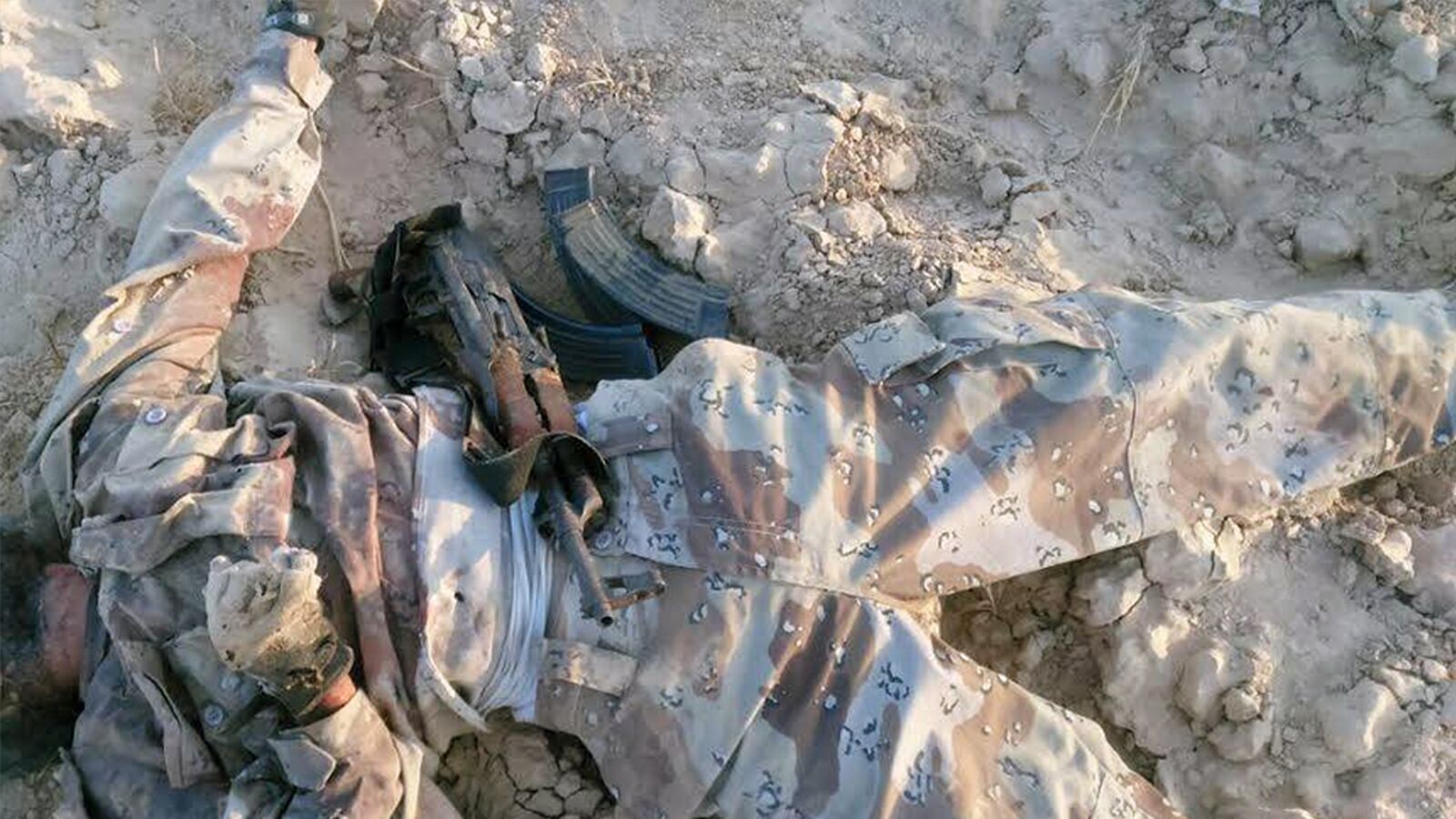It was a hearts-and-minds campaign in the form of blood and carnage.
The Egyptian army used its Facebook page on Wednesday to highlight the destruction it inflicted on the self-proclaimed Islamic State, proudly posting photos of scores of bodies lying in the desert.
There was a picture of scores of weapons lying on an ISIS flag, which garnered 27,000 likes. There were photos of the contorted bodies of the “despicable terrorists” lying in the desert, some lined up, nearly all wearing military uniforms. Some were lying next to their weapons.
Those 43 photos in the album had received 57,000 likes by the end of the day.

Facebook users shared a second batch of 30 photos nearly 29,000 times. In some photos, the military zoomed in on the faces of the dead, and nearly all showed the fighters’ machine guns, sometimes lying on top of their bodies.
“O Lord, grant victory to Egypt,” many wrote in response.
Outside Facebook, the postings were met with impassioned reactions from Egyptians, many divided about their government. Some thanked God for their military and the onslaught of jihadists whom they believe threaten Egypt’s stability. Still others saw the government perpetuating violence.
Either way, the postings show an Egypt engaged in an escalating military and media campaign.
Egypt this week has witnessed an aggressive escalation of the ongoing conflict between government forces and Islamic militants. On Monday, jihadists assassinated the state’s top prosecutor, Hisham Barakat, by detonating a car bomb as his two-car convoy passed by. As though to highlight their improved tactics, the attackers set up their car bomb in front of a military compound entrance. Ten people were killed in the attack. Barakat was one of the highest ranking government officials to be killed since President Anwar Sadat’s 1981 assassination.
More than any other Egyptian, Barakat was responsible for the prosecution of every leader of the Muslim Brotherhood, from which former Egyptian president Mohamed Morisi emerged until his ouster nearly two years ago. The government now considers the Muslim Brotherhood a terrorist organization and the prosecutor’s office, led by Barakat, charged Morsi under several cases. He has since been sentenced to death and is awaiting the outcome of his appeals process.
At Barakat’s funeral Tuesday, Egyptian President Abdel Fattah al-Sisi vowed retaliation. Sisi suggested he would fast-track death penalty cases and eliminate the required appeals process for such cases.
“The arm of justice is chained by the law. We’re not going to wait for this. We’re going to amend the law to allow us to implement justice as soon as possible,” Sisi said Tuesday.
Almost immediately after Sisi spoke, parts of Egypt became a tit-for-tat battlefield.
Wilayat Sinai, a jihadi group that previously declared allegiance to ISIS, launched attacks on five military checkpoints Wednesday in north Sinai’s Sheikh Zuwaid, a stronghold for its fighters, killing at least 17 Egyptian soldiers and 40 other citizens.
The government struck back in a series of attacks that officials said killed 100 ISIS fighters.
And then it took the extraordinary step of posting photos of the dead to assure the public, as Egypt’s military spokesman declared later Wednesday, that northern Sinai was “100 percent secure.”
Many Egyptians were not convinced. Arabic language blogs and tweets reported that the north Sinai was now ISIS territory, joining parts of Nigeria, Libya, Afghanistan, and the North Caucasus.





